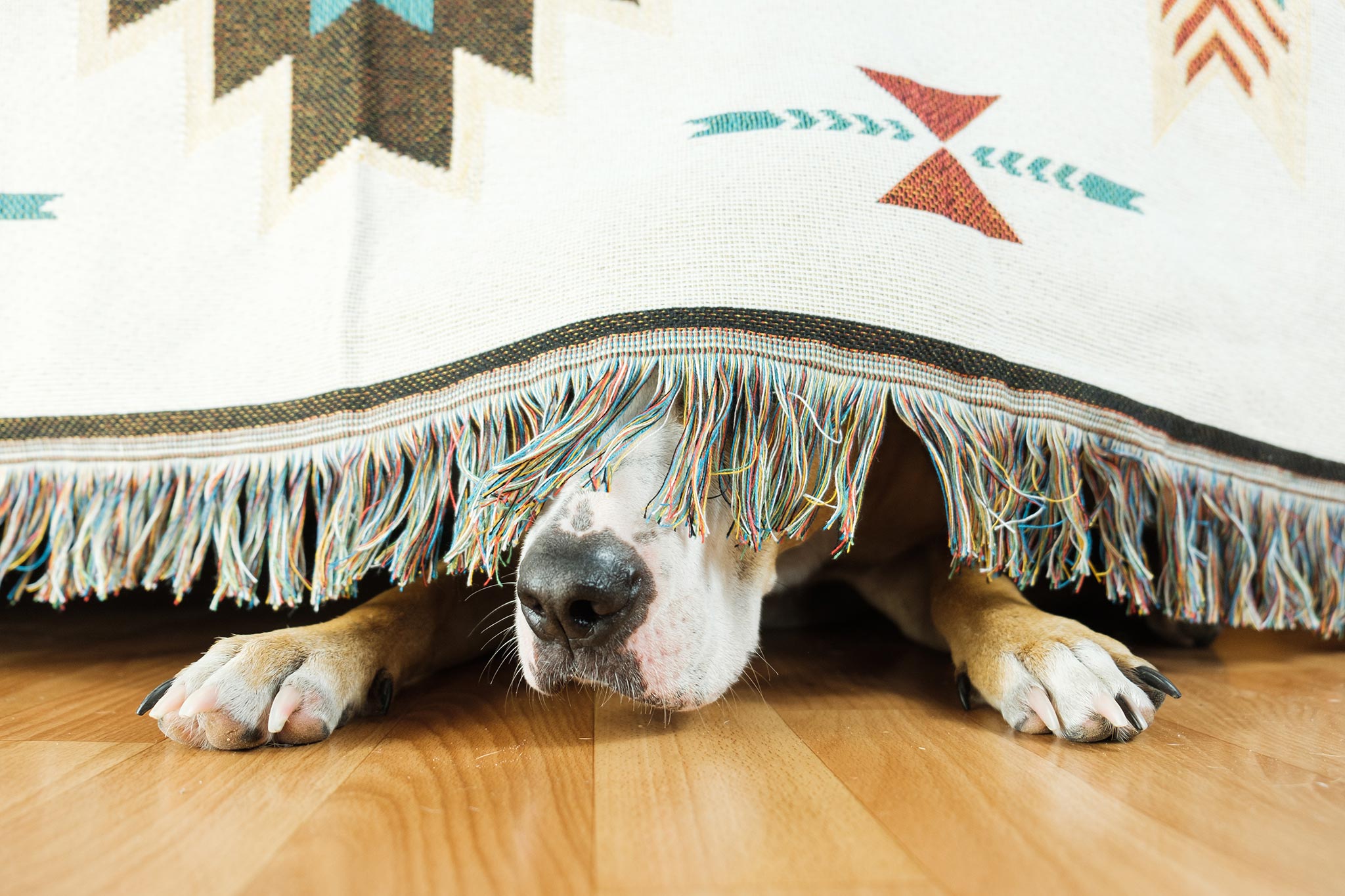Understanding your dog’s emotional health is just as important as taking care of their physical health. In this blog, we’ll explore how to identify signs of anxiety in dogs and what steps you can take to help them feel better. Anxiety in dogs can affect their quality of life and your bond with them, so it’s important to know what to look out for. If you’re worried about dogs with anxiety or need more information, the team at Gray Animal Hospital in Zion, IL is here to help. Feel free to call us at (224) 304-0668 or book an appointment online to talk about your dog’s needs or to schedule an appointment.

Recognizing Anxiety in Dogs
Anxiety can show up in many ways in dogs, and it’s not always easy to spot. Some dogs might become more clingy, while others may hide or show signs of aggression. Common signs include excessive barking or whining, pacing, shivering, and changes in eating habits. You might also notice destructive behaviors, like chewing on furniture or shoes, which can be a sign your dog is trying to cope with their feelings. Paying attention to these behaviors can give you a clue that your dog might be feeling anxious.
Common Causes of Anxiety in Dogs
Dogs can feel anxious for a variety of reasons. Some common triggers include loud noises, like thunderstorms or fireworks, changes in their environment, such as moving to a new home, and separation from their owners. Other dogs might feel anxious around new people or other animals. Understanding what causes your dog’s anxiety is the first step in helping them. It allows you to create a safe and comfortable environment that reduces their stress.
How to Help Dogs with Anxiety
While we always recommend talking to a veterinarian at Gray Animal Hospital for personalized advice, there are general steps you can take to help your dog. Creating a routine can provide a sense of security for anxious dogs. Consistent feeding times, walks, and playtimes can help reduce their anxiety. Offering a safe space, like a quiet room or a crate they can retreat to, can also make a big difference. For dogs scared of loud noises, playing soft music or using white noise machines can help drown out frightening sounds.
The Importance of Patience and Understanding
Helping a dog with anxiety takes time and patience. It’s important to stay calm and supportive, showing them love and understanding. Punishing a dog for anxious behaviors can make the situation worse, so focus on positive reinforcement. Celebrating small victories and progress is key. Remember, every dog is different, and what works for one may not work for another. Being patient and working closely with your vet will help you find the best way to support your dog.
The Role of Professional Help
Sometimes, dogs with anxiety need a bit of extra help. That’s where professionals like the team at Gray Animal Hospital come in. We can work with you to understand your dog’s anxiety and recommend solutions. This might include behavioral training to help your dog learn coping mechanisms or medication for more severe cases. We’re here to support you and your dog, providing the care needed to manage anxiety effectively.
When to Call Gray Animal Hospital
If you notice signs of anxiety in your dog, or if you’ve tried to help them and haven’t seen improvement, it’s time to call us. The team at Gray Animal Hospital is here to answer your questions and provide the care your dog needs. Whether it’s behavioral advice, medical treatment, or just someone to talk to, we’re here for you and your dog. Contact us at (224) 304-0668 or book an appointment online for more information on how to help dogs with anxiety.
